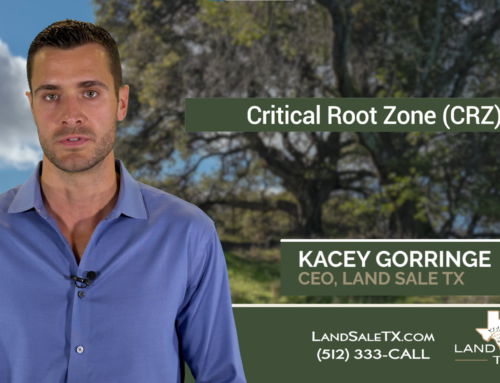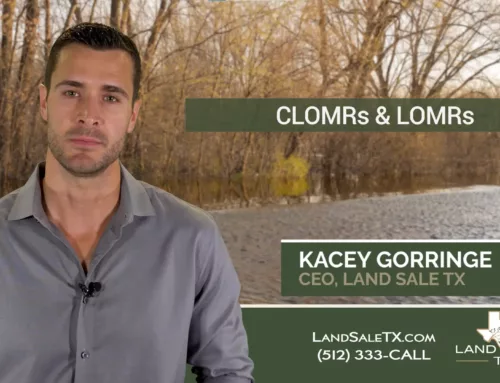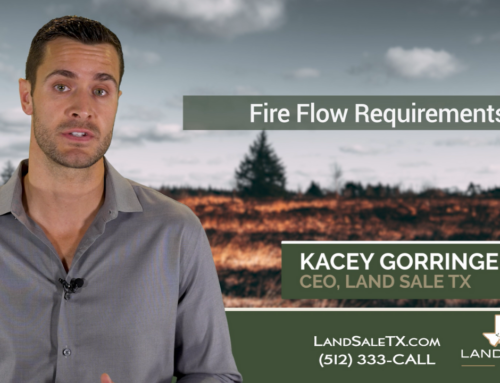Simply put, an easement is the of one person to use the land of another. But, as a landowner or someone looking to purchase property, it’s important to be aware of some of the different easement categories, classifications and when they can be applied to your land.
If you own a piece of property or if you’re looking to buy a property, almost always there will be various types of easements on these properties. An easement is the right for one person to use the land of another. Now easements come in all sizes, shapes and colors so to speak and it’s important that you understand the implications of the various types of easements.
There are many types of easements and they usually fall under four different categories in Texas. Easements by Necessity, Easements by Prescription, Easements by Dedication and Easements by Condemnation.
Easements by necessity are when a landowner does not have any access via ingress or egress to his property and must utilize access through what’s called a servient estate. This is where the dominant estate actually holds the easement through the servient estate. This is very nuanced and doesn’t come up that often.
Next is the easement by prescription. This is when a claimant has an adverse impact on a neighboring landowner and claims property. Now, this claimant must meet a few different criteria such as, the access is used exclusively by the claimant, it is in adverse possession to the other owner of the land and it must have been used for a period of 10 years or more.
Next is easement by dedication. These are the most common types of easements that you’ll see such as, public utility easements, joint use access easements, drainage easements, conservation easements, etc. Conservation easements are actually becoming very popular in the hill country just west of San Antonio and Austin because it’s such a beautiful area, land owners want to conserve and maintain that beauty and keep it from development. And, there are actually great tax benefits to place a conservation easement on a property. Conservation easements can either be in perpetuity or for a specific finite amount of time.
Lastly, are easements by condemnation. This is where private land is taken via process called eminent domain for the use of public land. This is typically used for laying oil and gas pipelines, building new roads, widening roads, etc. Now, there’s been a lot of controversy about easements by condemnation and eminent domain over the years because, as mentioned, it has to be used for the public good. But, if a pipeline, for example, is being laid, it’s also for the benefit of a privately held company. So, there’s a lot of controversy around this.
Lastly, there are easement classifications that you should be aware of. These are pertinent and in gross. A pertinent just simply means that it’s an easement that is tied to the land and when you sell that land it will run with the land. Whereas, an easement in gross is a private easement that will actually be terminated when the property is sold.
Feel free to reach out to us with questions or other topics you’d like to see covered.
🤠 We’re Your Local & Trusted Central TX Land Buyers serving Travis, Williamson, Caldwell, Bastrop & Hays counties. Subscribe to our YouTube Channel for weekly tips and insight into land buying, land selling, and real estate investing from our seasoned land acquisition specialists. SUBSCRIBE: https://tinyurl.com/hcfnsyk8
💻 Want a Cash Offer for your land in 24 hours or less with No Agent Fees or Closing Costs? Learn more: CONTACT US: https://landsaletx.com/contact/
☎️ Looking to sell your Central TX land quick & stress-free -OR- Interested in investing in land in the area, we’d love to tell you about some of the off-market opportunities we find through our marketing. CALL or TEXT Us Today at (512) 387-7749.
SOCIALS: @LandSaleTX
Facebook: https://www.facebook.com/LandSaleTX/
Instagram: https://www.instagram.com/landsaletx/
⚠️ We are NOT attorneys, licensed CPAs or Tax Professionals. We can provide honest, ethical and creative solutions for selling or investing in land, but ALWAYS recommend you get advice from your attorney, CPA and Professional Tax Advisor.


